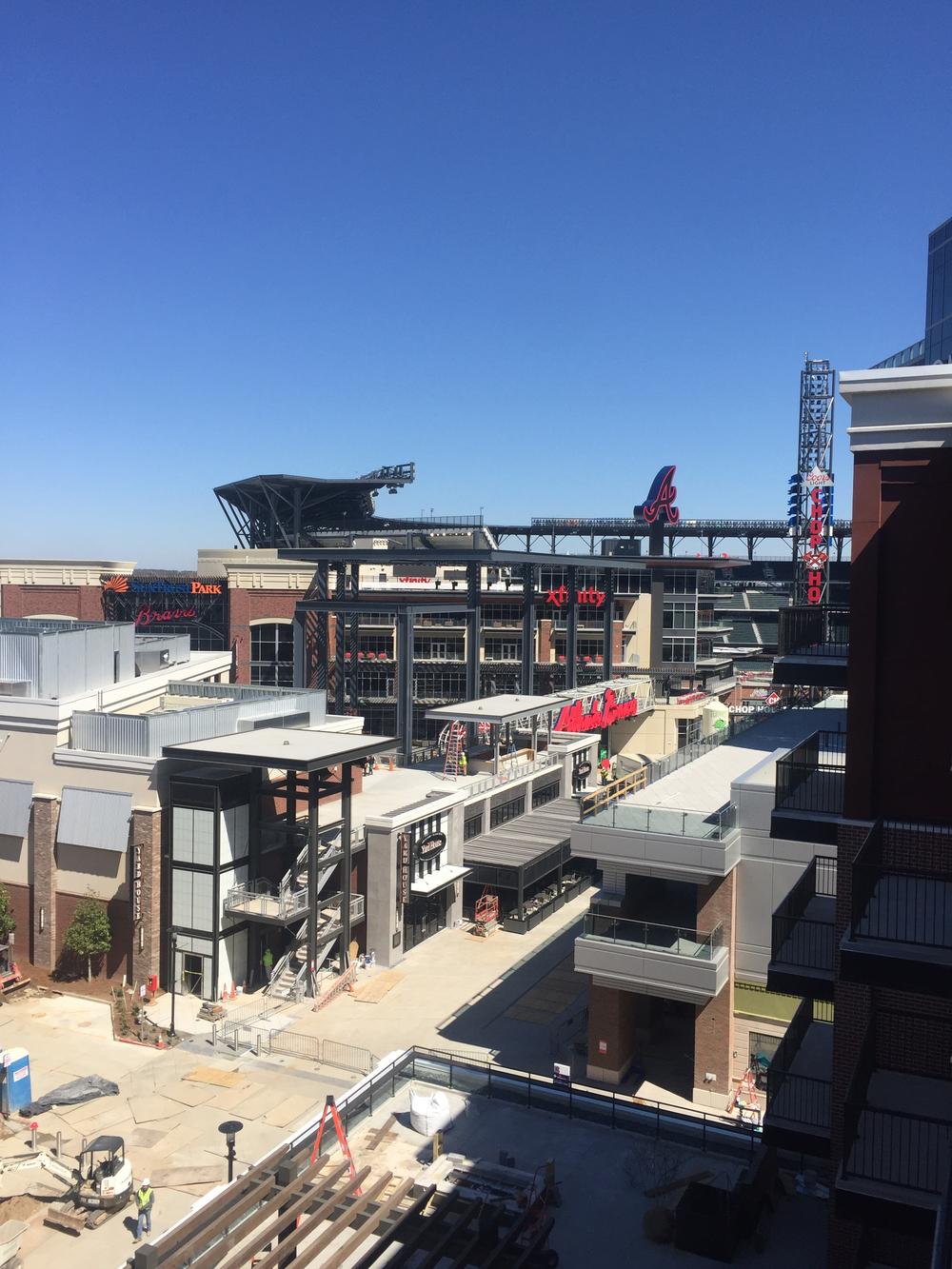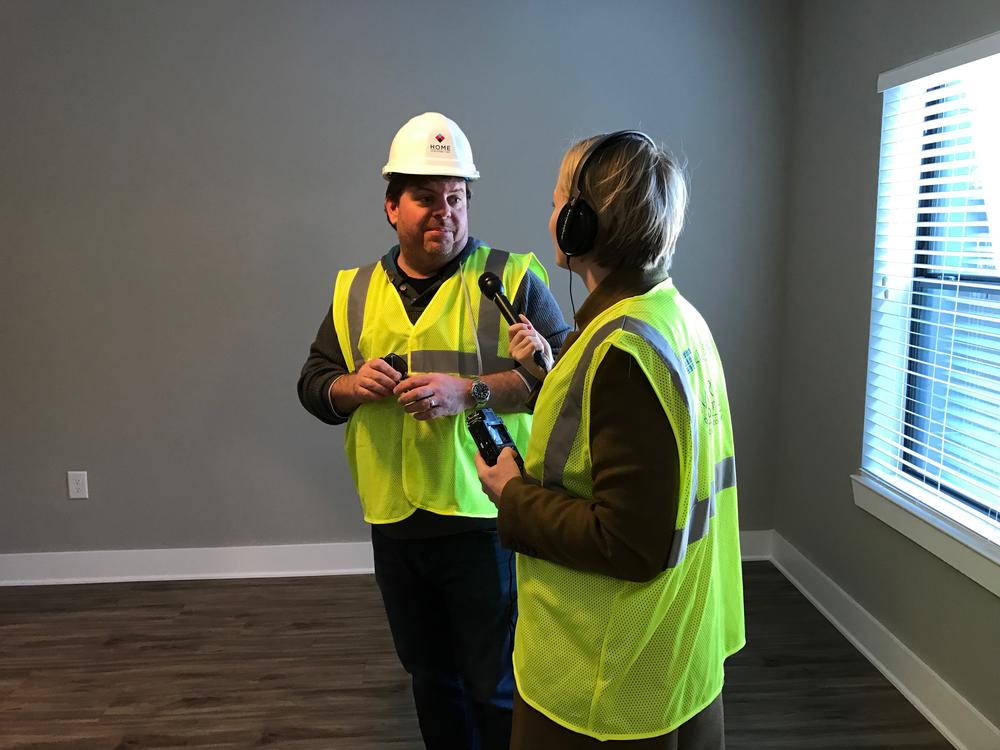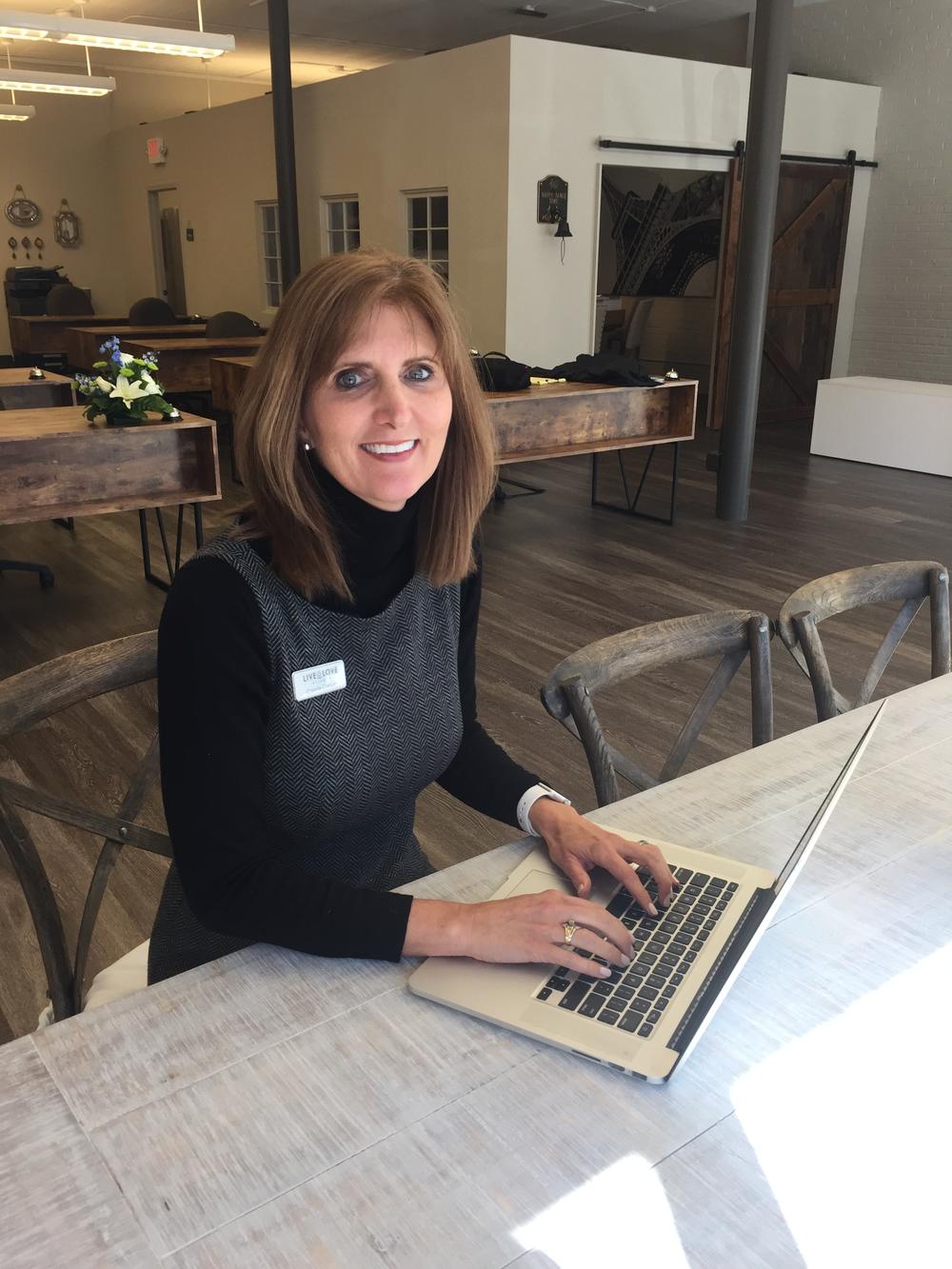Section Branding
Header Content
Braves Move A 'Home Run' For Cobb Real Estate
Primary Content
When the Atlanta Braves announced their move to the suburbs in 2013, some skeptics foresaw an exodus of residents fleeing game day traffic and crowds.
Four years later, Cobb County home sales are outpacing other metro counties.
Rickey Bevington explores how the Atlanta Braves have affected Cobb County's real estate market.
Newly-wed Jeff Dauler is getting a first-time tour of his future apartment at The Battery, a residential apartment complex on the mixed-use campus of Major League Baseball’s newest venue SunTrust Park.
“Walking distance to a bowling alley. I mean – can you beat that? And then SunTrust park.”
The street below Dauler’s balcony is still a construction site that will soon feature bars, restaurants, stores and a theater – essentially an open-air mall.
Dauler, of Star 94's The Jeff and Jenn Show, and his wife Callie discovered on their honeymoon in Key West that when they don’t have a car, they enjoy walking to the coffee shop, or the grocery store, or a restaurant.
“I think there's a lot of people trained,” Dauler said. “Trained not to get up and walk because there are cars available. I think people have to be kind of hit over the head with ‘walkability’ even though it already exists.”
Yes, you heard that right.
Walkability – in the suburbs.
This is Cobb County after all, where voters have rejected Atlanta’s public transit system MARTA for decades.
Marietta-based real estate agent Connie Carlson of the agency Live Love Atlanta said walkability is why the hand-wringing about game day traffic isn’t sending Cobb County residents packing.
“November of 2013 is when the public found out that the Braves were building the stadium,” Carlson said. “If everybody was going to be freaking out, you would expect that Cobb County housing would suffer from that because people would just sell their house and move.”
In fact, in those intervening four years, home sales in Cobb County are up an average of 13 percent, more than the metro Atlanta average of 10 percent in that same time period.
Carlson said sales are even more brisk around the county’s walkable town centers.
“Get this: Vinings, 21 percent increase. Smyrna, 23 percent increase. Marietta, 16 percent increase. If people don't want to live around the stadium, why are the number of homes being sold increasing at a faster rate than the Atlanta average?”
That’s not to say people in Cobb County aren’t realistic about what happens when thousands of people come and go from a 60-acre development with a 42,000 seat baseball stadium, 531 apartments, thousands of square feet of office space, plus dozens of stores and restaurants.
According to real estate agent David Boehmig: “Traffic is always a problem.”
Boehmig, Founder and President of Atlanta Fine Homes Sotheby's International Realty, has been selling residential real estate around metro Atlanta since the Braves’ previous home downtown - Turner Field - was built in the late 1990’s.
“I think it's going to be a challenge like it was when you were going to a Braves game,” Boehmig said. “I mean, you never heard people complain about going to the Braves game when it was downtown and sitting in traffic. They knew it, and they expected it.”
Boehmig predicts SunTrust Park will have different transportation challenges than “the Ted” because there’ll be more to do there.
“I think the infrastructure with the restaurants and the shopping that's there will help to stretch out the arrival and departure times, as opposed to at the stadium downtown where people would drive down for the game and then they would leave.”
So, SunTrust Park may just be one more opportunity for Atlantans to do what we do best: Complain about traffic, and strategize how to avoid it without paying for transit alternatives.




